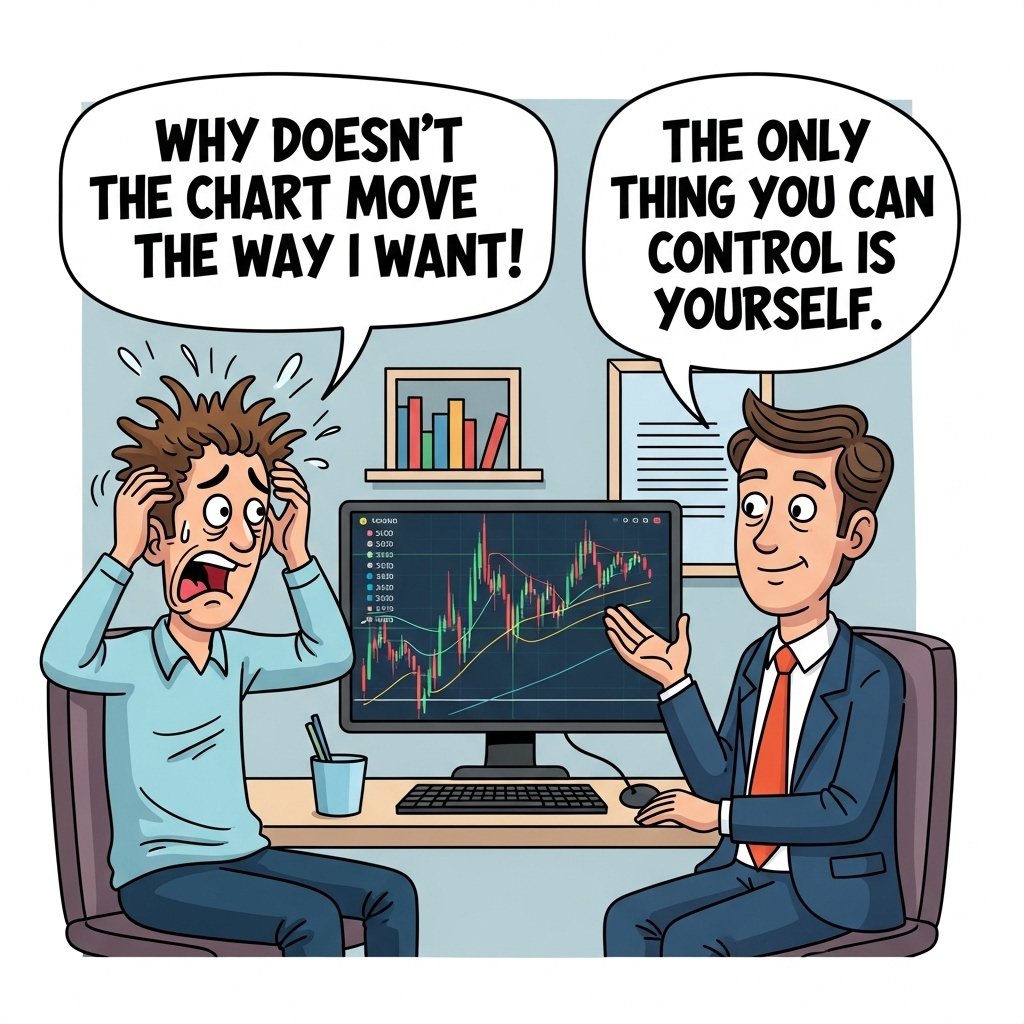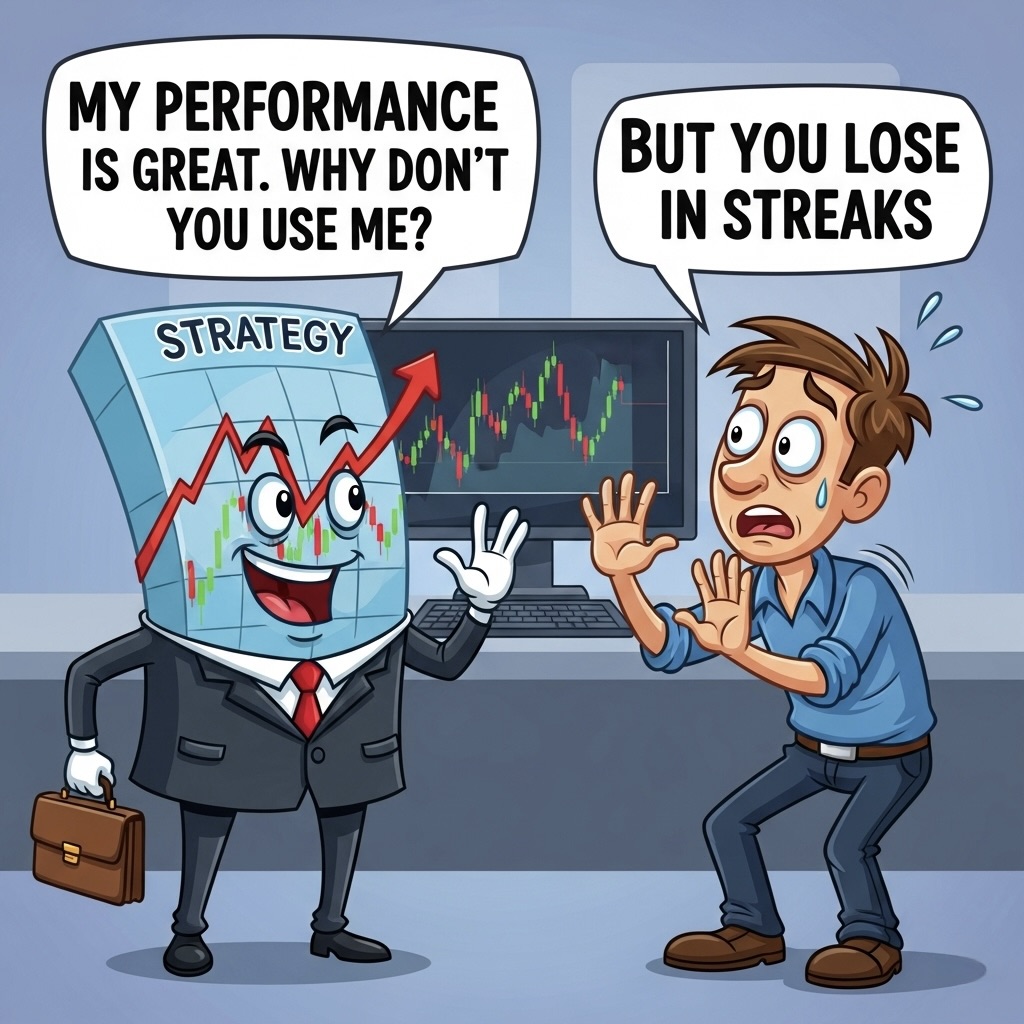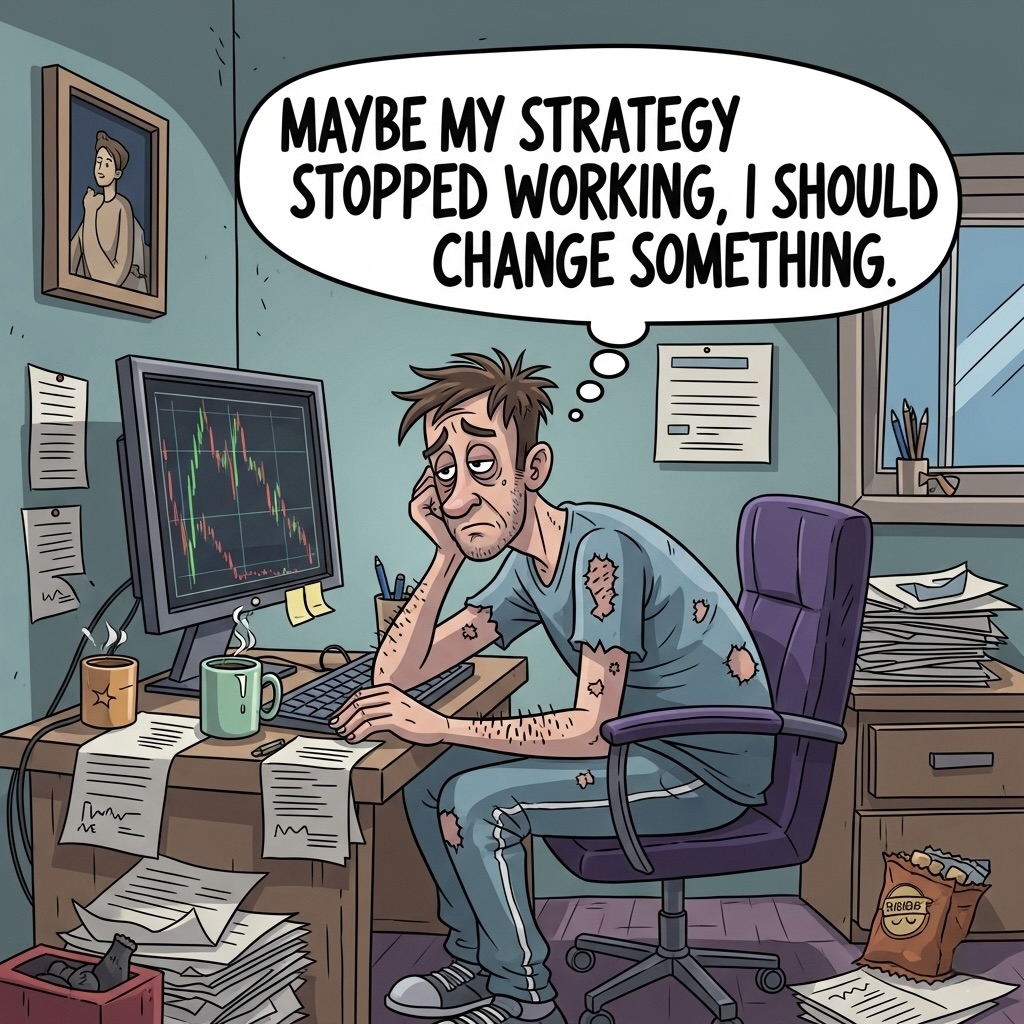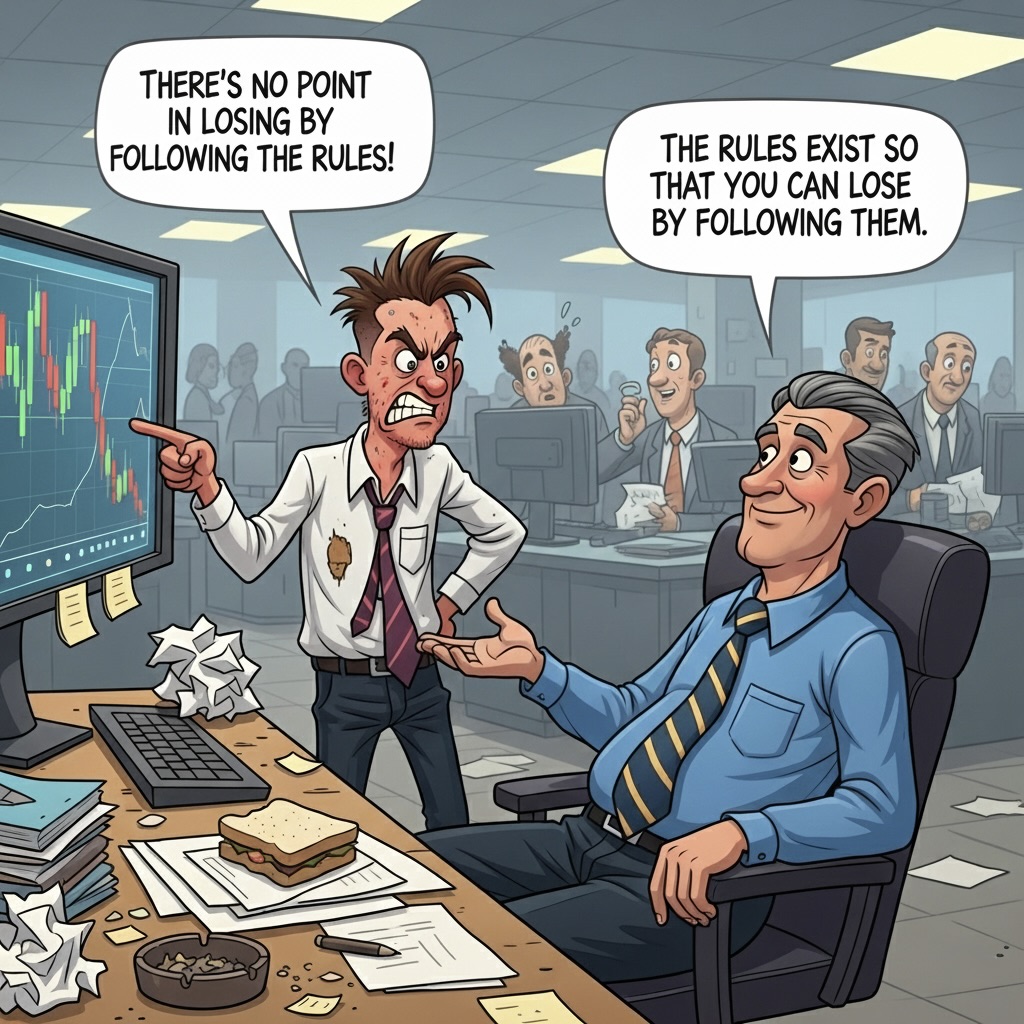What you can control in trading 🧵
Many traders waste energy and lose capital by fighting what they cannot control.
Market movements. The outcome of a single trade. None of these are under your command.
🧵1/5
Many traders waste energy and lose capital by fighting what they cannot control.
Market movements. The outcome of a single trade. None of these are under your command.
🧵1/5

2/5
Every time you focus on results,
you are abandoning what you actually can control.
Focus only on rules and actions.
That is the lever that moves probability.
Every time you focus on results,
you are abandoning what you actually can control.
Focus only on rules and actions.
That is the lever that moves probability.
3/5
There are only three things you can fully control:
1. The preparation, such as building a strategy with an edge
2. The percentage of risk you take on each trade
3. Your consistent actions
There are only three things you can fully control:
1. The preparation, such as building a strategy with an edge
2. The percentage of risk you take on each trade
3. Your consistent actions
4/5
“Following the rules doesn’t guarantee a win.”
Of course—that’s true, because single outcomes are random.
But if you claim that, you must also accept that “breaking the rules doesn’t guarantee a win” either.
That is precisely why we prepare rules with an edge, and then trade only under consistent conditions, so that the law of large numbers can do its work and extract the probabilistic edge embedded in those rules.
“Following the rules doesn’t guarantee a win.”
Of course—that’s true, because single outcomes are random.
But if you claim that, you must also accept that “breaking the rules doesn’t guarantee a win” either.
That is precisely why we prepare rules with an edge, and then trade only under consistent conditions, so that the law of large numbers can do its work and extract the probabilistic edge embedded in those rules.
5/5
Do not try to control the market.
That is not within your power.
What you must control is your preparation, your risk, and your actions.
When you master those three perfectly, you gain true power as a trader.
The results will quietly follow that flawless process.
Thank you for reading!
If you enjoyed this thread, I’d encourage you to also read my two books, which I wrote to help you develop probabilistic thinking and consistency.
They will fundamentally change the way you trade.
E-book
payhip.com/YumiSakura/col…
Paperback
【THE PATH TO SUCCESS IN TRADING】
a.co/d/fXmRhIa
【Trading Psychology】
a.co/d/d0QJMxK
Hope these insights help your trading journey😊
Do not try to control the market.
That is not within your power.
What you must control is your preparation, your risk, and your actions.
When you master those three perfectly, you gain true power as a trader.
The results will quietly follow that flawless process.
Thank you for reading!
If you enjoyed this thread, I’d encourage you to also read my two books, which I wrote to help you develop probabilistic thinking and consistency.
They will fundamentally change the way you trade.
E-book
payhip.com/YumiSakura/col…
Paperback
【THE PATH TO SUCCESS IN TRADING】
a.co/d/fXmRhIa
【Trading Psychology】
a.co/d/d0QJMxK
Hope these insights help your trading journey😊
• • •
Missing some Tweet in this thread? You can try to
force a refresh










